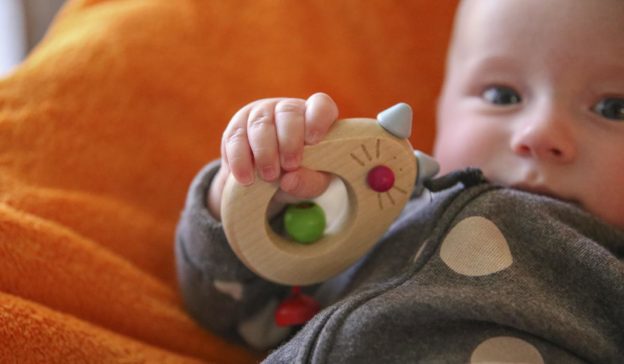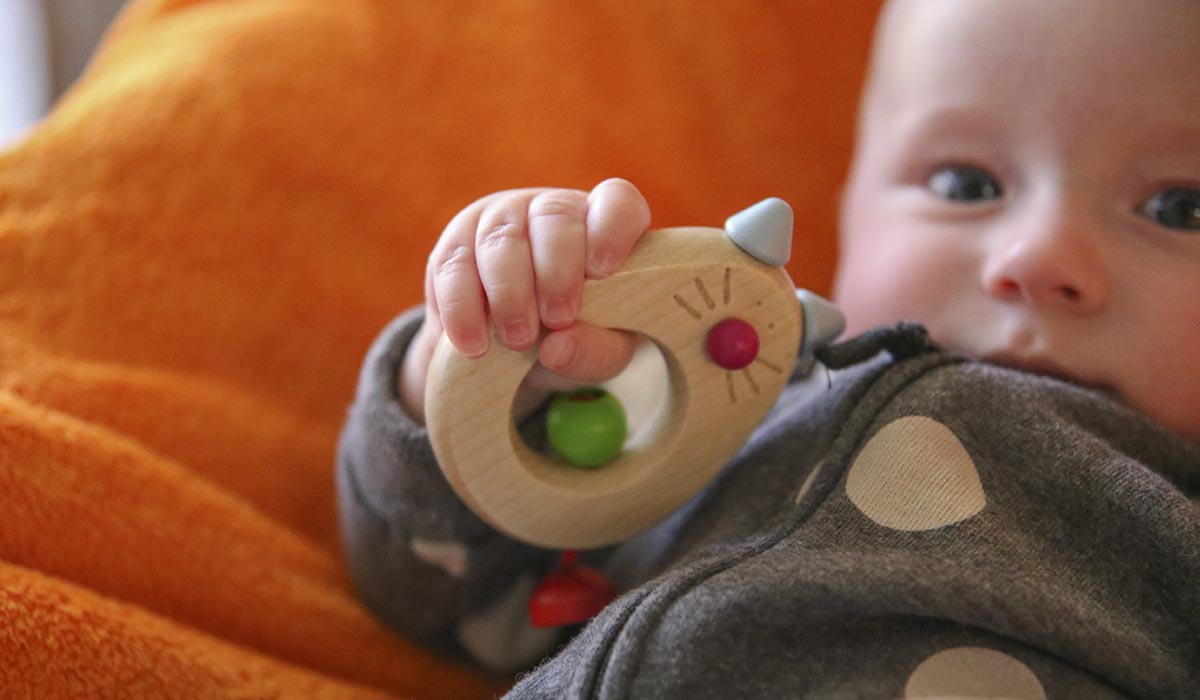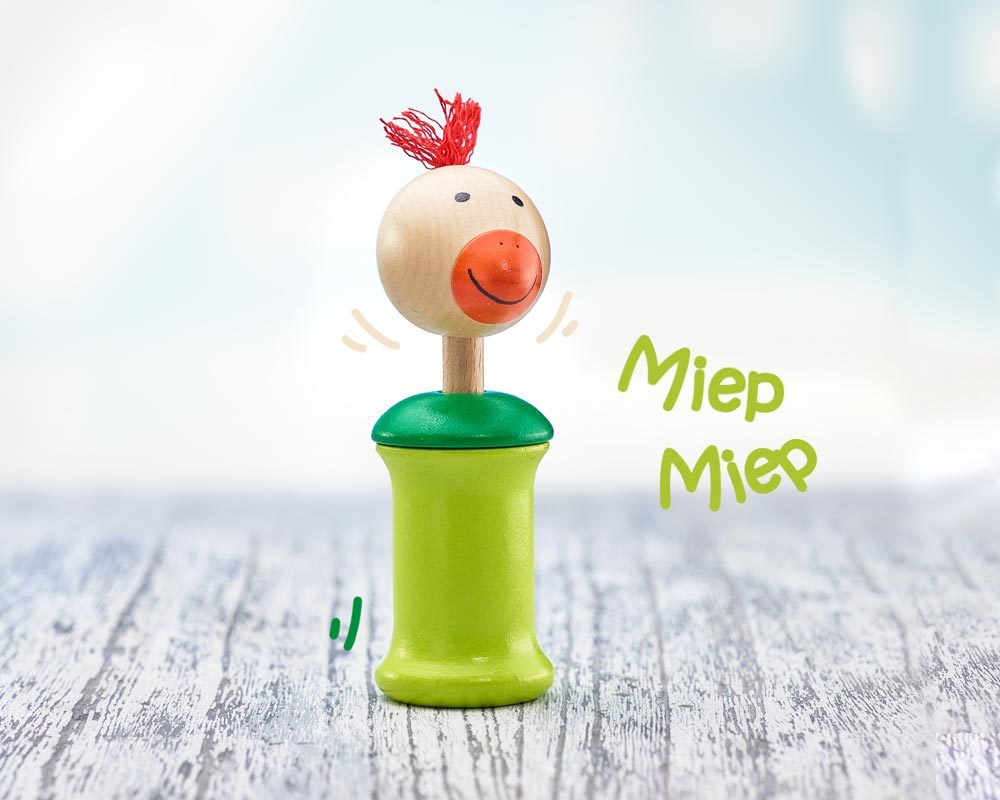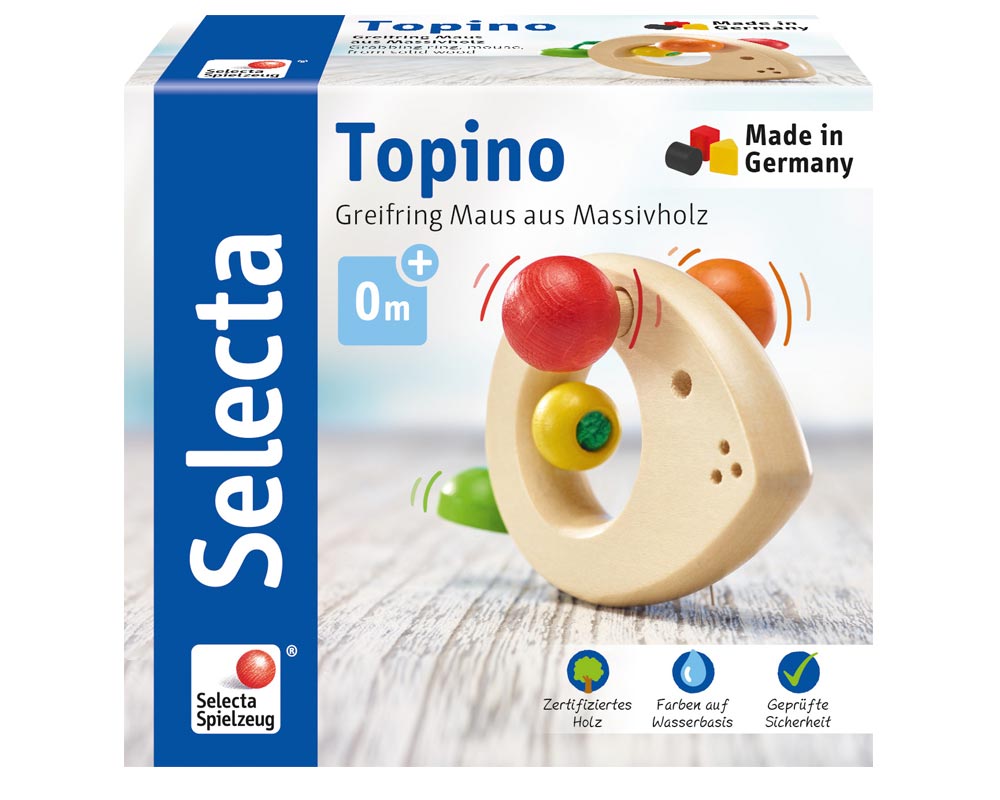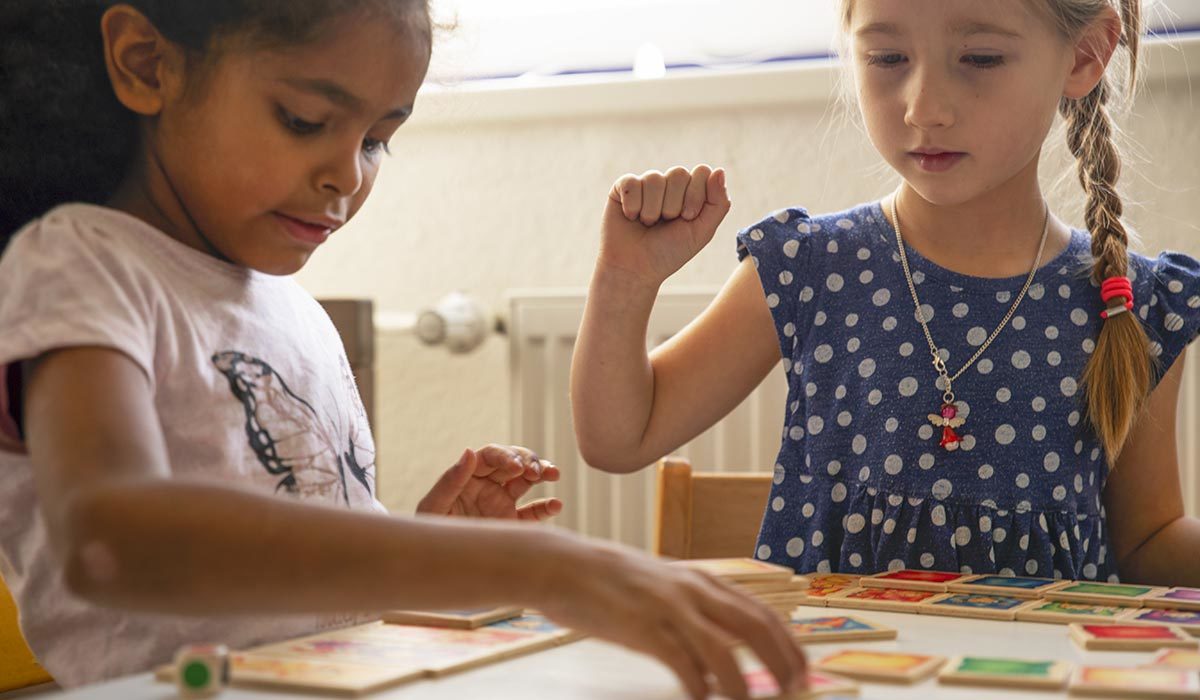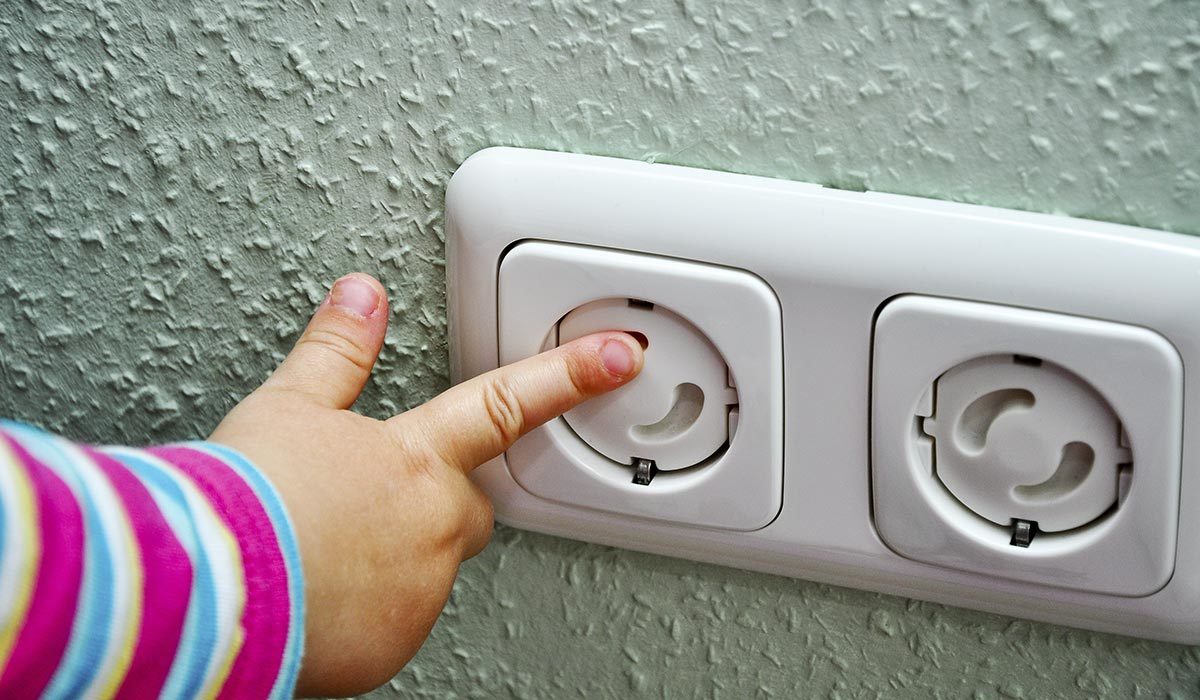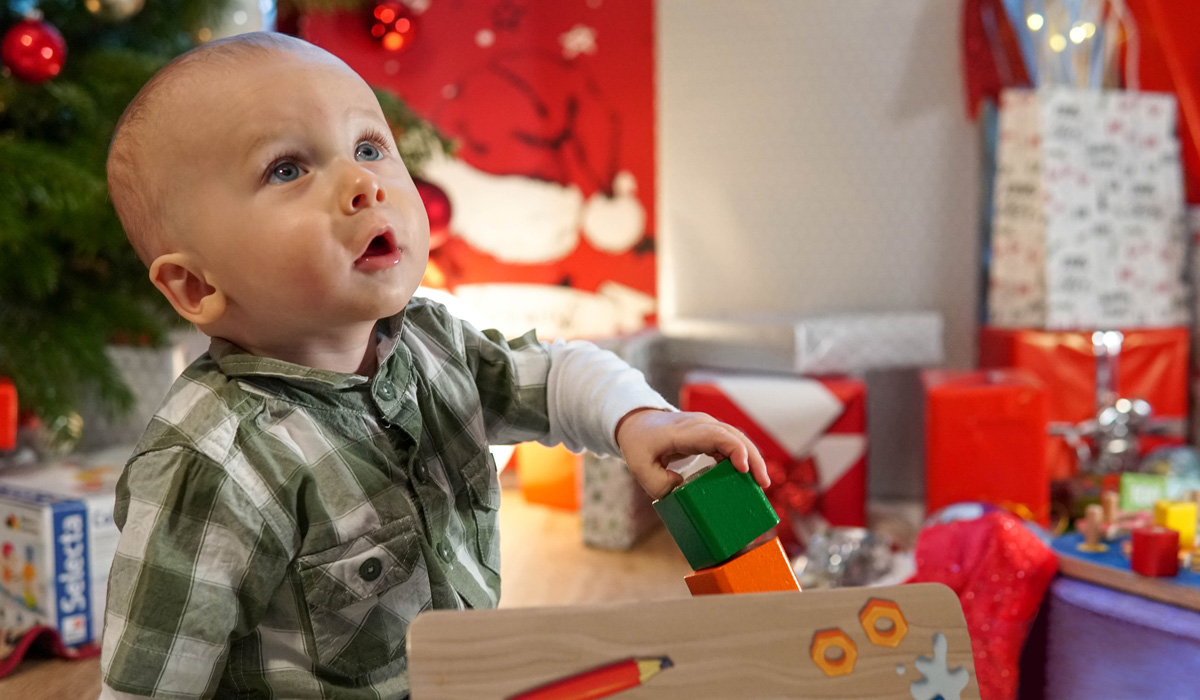Newborn babies come into the world complete with all seven senses. Some of these have yet to fully develop, while others are even more pronounced than those of an adult. Which senses does your baby have, and how can you gently encourage their development?
How many senses does a human being have?
The number of human senses is a matter of some controversy among biologists. According to neuroscientists there are at least six senses: sight, hearing, balance, touch, taste and smell. But the answer to this question is not totally clear-cut; modern researchers talk about other senses, such as the temperature sense (thermoception), self-awareness or muscular sense (proprioception), and of course the sensation of pain (nociception). Self-awareness of one’s inner organs, manifested for example as hunger and thirst, is referred to by scientists as the visceral sense.
These are a baby’s seven most important senses
1. Sense of sight
Newborn babies initially see everything out of focus. Vision, sharp-sightedness and the ability to differentiate between colours only develop gradually. You can watch this short animation to find out how the sense of sight evolves over the first 12 months.
How you can help develop their sense of sight:
Babies are particularly good at recognising colours, meaning that the best toys in the first few weeks are those with strongly contrasting shades.
2. Sense of hearing
Infants hear very acutely. It is presumed that this is necessary for them to be able to develop speech.
How you can help develop their sense of hearing:
Using a variety of stimuli and sounds is a good way to ensure that their hearing develops well. You should also talk to your child a lot as well as singing to them. Be careful not to expose your baby to very loud volumes, though—especially with toys that make sounds. The bells and rattles in Selecta wooden toys are, by the way, totally harmless to a baby’s ears.
3. Sense of balance
As early as the seventh week of pregnancy, the organ of balance in the baby’s inner ear, known as the vestibular, is beginning to develop. This is stimulated by the movement of the mother.
How you can help develop their sense of balance:
Babies love being rocked and carried. It calms them and, at the same time, trains their sense of balance. As soon as your baby starts to crawl, toys that can be rolled provide a particularly exciting boost to mobility.
4. Sense of touch
Although the skin is the human body’s largest organ of touch, a baby’s sense of touch in their first year is best developed through the lips and the tongue. This is why babies love to put objects in their mouths so that they can feel and explore them thoroughly. It is only at about 18 months that small children can differentiate between subtle stimuli with their hands as well.
How you can help develop their sense of touch:
All objects that your baby feels with their mouth or skin stimulate the development of the corresponding region in the brain. Be sure to make a lot of contact with your baby’s skin, and give them the opportunity to touch lots of different materials.
5. Sense of taste
Scientists are not in total agreement over whether the sense of taste is inherent or acquired. It is, however, beyond dispute that all taste buds develop when the baby is still in the womb, and that an infant’s sense of taste is even more pronounced than that of an adult.
Babies around the world are born with a preference for sweet things (such as the sweet taste of breast milk). At the same time they vehemently reject anything that tastes sour or bitter. This is a completely natural defence mechanism that protects them from rotten and unripe food. It is only at about four months that the taste buds have developed to the point where salty tastes are also recognised.
How you can help develop their sense of taste:
Children prefer what they know. This is why the mother’s diet during pregnancy and while breastfeeding has a significant influence on later preferences. Introducing your baby to new flavours takes patience. It is perfectly normal to need more than 12 attempts before an unfamiliar taste is accepted.
6. Sense of smell
Even unborn babies can make out smells, which they absorb when swallowing amniotic fluid. Newborn babies have a fully developed sense of smell and recognise their mothers, as well as breast milk, instantly by scent. For this reason the familiar odours of their parents or their home also have a particularly calming effect on babies.
How you can help develop their sense of smell:
In order for the nerve cells in your baby’s brain to be able to interconnect efficiently, the baby needs as much sensory stimulation as possible. Let your child sniff at a wide variety of things. But be careful not to overstrain the baby’s sensitive olfactory cells with strong-smelling perfumes, aftershave lotions or creams.
7. Sense of the body
Our sense of our own body allows us to feel, for instance, how our body parts are positioned, or how much strength we need to hold something. The baby’s ability to feel his or her own body starts to develop from about the third month of pregnancy. After birth, babies constantly seek stimuli that show them where their own bodies end and the outside world begins.
How you can help develop their sense of their body:
In order for babies to learn to feel their bodies, they need plenty of attention in the form of cuddles, gentle application of creams, or massages. Kicking and crawling are also important to teach them body perception.

